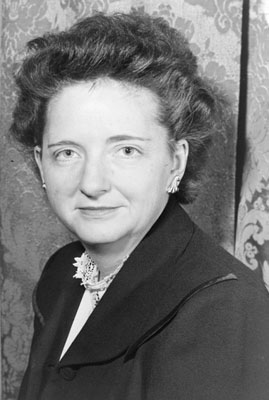Elizabeth Bentley, an American, graduated from Vassar College in 1930 with a degree in languages. While completing a Master’s degree at Columbia University she won a scholarship to the University of Florence. There she became part of a Italian fascist group enjoying the social conscious and camaraderie.
Upon returning home in 1935 she joined the Communist Party of the United States (CPUS) and obtained a job in New York City at the Italian Library of Information. Being a young academic idealist she reported to the CPUS that she would gather intelligence on the fascists. This soon drew the attention of the Soviet secret police and they instructed their most important Soviet agent in the U.S to handle her. It was two years before she knew that her lover was a Soviet intelligence officer.
The USSR, like the US, believed that they needed to control women espionage agents due to their sexual weaknesses and erratic behaviours. They wanted Elizabeth Bentley’s contributions so a male handler was deployed to keep her in line. As Katherine Fusick reports in reviewing Soviet documentation about Elizabeth Bentley, “The full page dedicated to outlining Elizabeth Bentley’s love life is proof that the Soviets also had a preoccupation with the romantic sides of female spies similar to the American preoccupation” of the time. The cultural shadow of the era was obvious in both the USSR and the US regarding women’s inability to perform as well as their male counterparts especially in espionage. However, when her Soviet lover died, Bentley was temporaily given the position of overseeing his network of spies. When replaced she realised she had been part of a communist machine with more extreme ideas and plans than she could agreed with and this and the fear for her life drove her to defect to the FBI in 1945.
From interviewing the Invisible Women agents in 2005, I know that a couple of them would agree that they were idealists before being exposed to the terrors of war behind the lines however, none would have turned to spy for an enemy institution or power. But, it is easy for some people, as in the case of Elizabeth Bentley, to get caught up in extreme and/or unconventional ideals. Often however, when they are eventually exposed to the violent consequences of those ideals, they shift their views in line with a more practical reality.
For more information on why ordinary people spy on their own governments and during the Cold War, click here.


 Cold War Widow
Cold War Widow
Leave a Reply